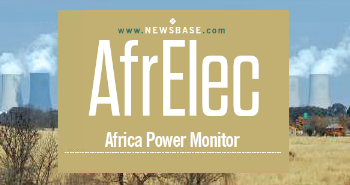EnerGeo Alliance promotes natural gas as South Africa’s premier transition fuel
EnerGeo Alliance, a global trade association for the energy geoscience industry, has positioned natural gas as South Africa’s premier transition fuel in its latest policy brief, according to the African Energy Chamber (AEC).
Leveraging science, technology and a data-driven approach, the report highlights many benefits of using natural gas for power generation owing to its reduced carbon emissions, scalability and cost competitiveness. The AEC on July 2 said it supported these findings and called for greater foreign investment in Africa’s natural gas projects.
In South Africa, the power supply remains in urgent need of diversification away from coal-fired power generation. The country relies on a fleet of ageing and poorly maintained power stations for up to 85% of its electricity supply.
At the same time, Africa’s most advanced economy is looking to renewable energy sources to diversify its power mix and alleviate crippling power outages, locally known as load shedding.
EnerGeo’s brief identifies natural gas as the ideal transition fuel for achieving a low-carbon future and meeting the demands of South Africa’s rapidly growing population and economy, says the AEC.
According to the report, countries that use gas as a source for power generation have seen their electricity supply grow approximately three times faster in the past decade than those without gas. The AEC has long advocated for the exploration and development of Africa’s natural gas resources, of which the continent holds over 620 trillion cubic feet (17.5bn cubic metres).
With more than 50 member countries, EnerGeo Alliance brings global geoscience to discover, develop, and deliver alternative and low-carbon energy solutions that address the growing energy demand. Natural gas emits 50-60% less carbon dioxide (CO2), making it a relatively clean energy source capable of meeting power demands reliably and at scale.
Additionally, natural gas is essential for producing fertilisers and petrochemicals and serves as a source of process heat in energy-intensive industries, offering the potential to decarbonise heavy industry. According to the World Economic Forum, tripling Sub-Saharan Africa’s power consumption using natural gas would only result in a 1% increase in global carbon emissions.
Furthermore, natural gas represents the most cost-effective pathway to energy security for South Africa and the continent at large. It can provide both base load and backup power, unlike solar and wind power, which face intermittency issues. It is also more cost-competitive as a base load supply than nuclear generation.
According to EnerGeo, large-scale discoveries, such as the Brulpadda-Luiperd gas condensate fields in the Outeniqua Basin, the offshore prospects in the Orange Basin, and the onshore shale gas development in the Karoo region, suggest that South Africa could meet its power demand through domestic gas resources and also stimulate broader economic development through regional gas exports.
The report recommends South Africa’s promising natural gas reserves for further upstream investment. It points out that advanced seismic surveys, upstream geoscience, and data generation activities are crucial for identifying potential gas reserves, de-risking exploration, and reducing the environmental footprint associated with gas exploration and extraction.
Significant investment is also needed across South Africa’s midstream and downstream sectors, including regional transmission pipelines, gas storage facilities, and gas-to-liquids, regasification, and LNG plants, according to the report. While gas-fired power plants are already under construction at Coega, Richards Bay, and Saldanha Bay, new projects are essential to enhance South Africa’s gas availability and reliability.
“The AEC supports the EnerGeo Alliance in positioning gas as critical to South Africa’s energy independence and low-carbon future. The science confirms this, and the bottom line confirms this,” says AEC executive chairman NJ Ayuk.
“More capital must flow to African upstream and integrated gas projects, and we must support the geoscience community so that natural gas exploration is no longer seen as a risk, but as a given.”



Follow us online